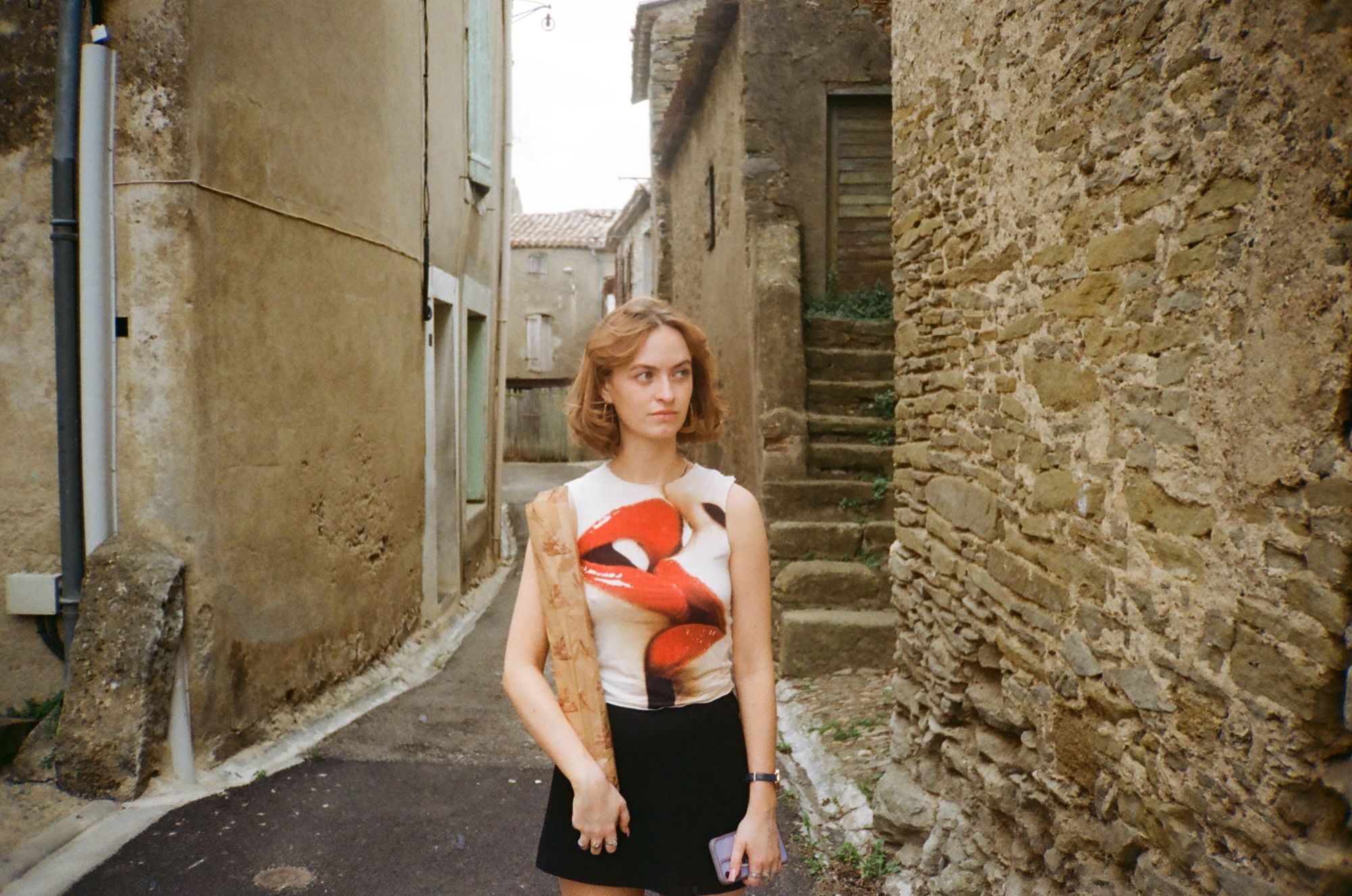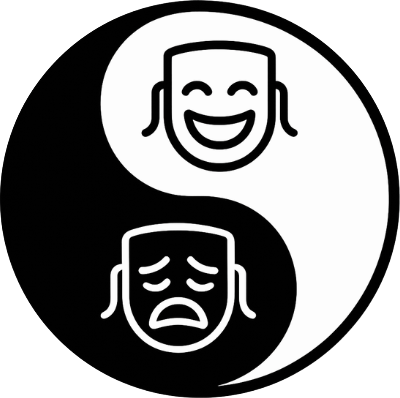Behind the Breakout: Jemma Carlton
She may have just portrayed one of Britain's "most hated" women, but Jemma Carlton is anything but. Sweet, petite, and effervescent, the Stafford-born actor is, however, as compelling in person as she is on stage and screen.
Jemma recently made her TV debut in the Channel 5 series Maxine, playing the eponymous character. Based on the real investigation, the three-parter chronicles the double murder of two Soham school girls in 2002. It's a harrowing watch, yet a striking example of the transformation an actor can achieve with a shed tonne of research and prep.
Here we talk to Jemma about Julie Andrews, pity parties, and what she's now seeking to manifest.

Do you remember the moment you first decided to be an actor?
Jemma Carlton: To be honest, I remember always being a little bit of a show-off, even if it was forcing my grandparents to watch my choreographed performance of ABBA's greatest hits. I don't think I had a "moment" where I decided I wanted to act, but I remember being incredibly put out in Year 6 when my teacher said, "Write down what you want to be when you're older", and I uninhibitedly put "Actor". Mrs McDonald told me to put something more realistic… No offence Mrs McDonald, but I do vividly remember being incredibly irked, so maybe then, if I had to specifically pinpoint it. As I am thinking about this, perhaps it's my origin story. I also had to write a letter to my idol in school. Some kids did Wayne Rooney, others Avril Lavigne. Mine was Julie Andrews. I was 11 and obsessed with The Sound of Music. Not cool.
Continuing your origin story, you graduated from London's Rose Bruford College in 2019. Can you talk to us about your experience?
JC: I personally look back on my training incredibly fondly. It set me up to have a toolkit of skills to approach work in a detailed way that I now do every single time – be it an audition, filming etc. Fundamentally, I had great tutors – Tess Dignan, Peter Bramley, and Julian Jones – whose voice work, physicality, and dramaturgy I take into every character. I like to get into a place where I can play, and for me, that comes from preparation and working on the text, then getting it on its feet and exploring. Also, this then allows for – in the classic Bruford [Sanford] Meisner way – taking everything from the other person and letting them affect you.
Saying this, it came with its own struggles. In my first year, I lost all confidence I had in myself as an actor. By Christmas, I was crippled by even getting in the space and comparing myself and my progress to other people, which I think is a common theme from first-year anxieties. I cared too much about people's opinions. This grew in second year when I began to care less about my progress and people's taste, and I feel like I only really began to find my feet in third year. Better late than never! I also think it's a good thing to mention for someone who might be in training now, but every tutor you have, their notes and feedback is always rooted in their own taste. I'll see a show with my friends and say I didn't like it and they could have loved it. Acting is subjective and you can't be everyone's "taste".
I really enjoyed my time at Bruford and what I learnt has served me well, but felt I didn't get enough screen training. I know there's a shift at the moment for schools to do more screen, and I think classical training encompasses the fundamentals, but screen is an entirely different kettle of fish. The techniques needed for it differ massively from theatre. I went to classes such as Mixing Networks when I graduated and started creating my own little toolkit for screen.
You're now signed to Hamilton Hodell, one of the UK's powerhouse agencies. What was your process for attracting such high-tier rep?
JC: I'm very lucky to be signed to Hamilton Hodell – it's still very much a pinch-me moment. I was introduced to the whole office the other week and everyone was so incredibly supportive. I was welcomed into the HH family with open arms.
When [Maxine] was coming out I approached agents whose lists I liked, which consisted of lots of IMDbPro and detailed spreadsheets. I knew what I was looking for in terms of specifically searching for an agent that I thought I could now build a career with. I reached out via email with the trailer for the show and air date. For every meeting I got, I was also met with a lot of agents with closed books – which is understandable post-pandemic. I met with a few agents after the show aired and thought Lola (my current agent) matched everything I wanted, as well as getting that "gut" feeling. We joked that agent meetings were like dating, and I wanted to make sure I was signing with the right one for me. It's a big decision, but I honestly couldn't be happier.
How do you approach auditioning? Has this changed at all?
JC: I try to approach every audition as prepared as possible, and for me, this is where I get my confidence from. It's almost like going in with my own armour – with the knowledge that I have done all I can – and be able to bring all my ideas and choices into the room and not only articulate them with a casting director or director, but also demonstrate those choices. When I'm prepared, it allows me to then feel as though I can bounce off redirection – that's the part I find the most fun.
A considerable change over time is how I approach taping. When I graduated, I used to be such a perfectionist, to the point where I could spend three hours on one tape, recreating moments until I thought I had nailed it. Now it all goes back to preparation. I know exactly what I want to do with a tape, but then give myself more freedom to play with it and let the truth come in the moment instead of trying to manufacture it.
I always start with the text – reading it a few times, breaking it down, finding the beats, the shifts, the punctuation – before learning it. For me, it helps with the lines. I can digest them if I kind of have an idea of where they fit in a scene. Also, if you're doing the same scene for three hours it will just be stale, and you can tell.
Dealing with rejection can be super challenging. How do you navigate this?
JC: Handling rejection well is something you have to practice, and although it gets easier to deal with, no one is hiding the fact that it hurts. A teacher once told me: "Allow yourself to go to the pity party but don't outstay your welcome". Let yourself be a little gutted – it's because you cared, you worked hard – but then you have to simply… let it go. Easier said than done with certain jobs.
I'm also incredibly lucky because I'm surrounded by the best mates – balance is key. For a lot of us, acting is everything, but it becomes a dangerous thing when it's your only source of happiness. I had a situation in October [2022] when I was gutted about losing out on a play. I felt like, "Yup, this is me, I've got this one". When it didn't go my way I visited the pity party. But then, out of the blue two days later, I landed a new TV job that I taped for six weeks prior and had completely let go of. I wouldn't have been able to do both anyway. Life works in funny little ways.
100%. "Everything is divinely orchestrated", as they say. Have you found any Muggle Jobs that have worked particularly well for you?
JC: I've had so many jobs over the years I've lost count. From Christmas tree shops to selling luxury shampoo to pulling pints. I have no shame in working a "normal" job to support my acting. It's the reality for a lot of actors. You have to pay the rent when you're not working. I was working in customer service for a company for 2.5 years that I still work part-time for. They're supporting the NHS so it's really worthwhile.
I think flexibility is key. You need to be able to jump off for an afternoon for an audition at the last minute or have the ability to take the time to learn sides so you're not cramming at 2 am. It's very important to have the mindset of, "Yes, this job is great, they support me, they are flexible, but I'm an actor first and foremost". I had two months off while filming Maxine, and after filming I went back to work – helping the NHS staff with their computer needs. It's my reality of making this life work in the long term. When the show came out, life got super busy, so trying to navigate that was harder. But we make it work… somehow.
After working in hospitality from 14 until 22, I vowed I wouldn't do it again. It didn't work for me – I was knackered all the time. It's good to set boundaries on things that simply don't work for you.
I also run a production company, Jemini Productions, with Rachael Rooney, my housemate. This takes up a lot of my time because getting work off the ground (as anyone who creates their own work knows) takes a lot of labour. But this will one day become my "day job" alongside acting. Manifest, manifest, manifest.
Manifest 🙌 In a similar vein, are there any non-acting hobbies or practices that help keep you happy and well?
JC: I started going to the gym last year (I can hear the eyes rolling and yes, this makes me sound incredibly boring). But I find exercising regularly positively influences a lot of aspects of my life. May that be my mental health, feeling good about my body etc. I also make sure to go to the gym before every in-person audition – run out the nerves and listen to Megan Thee Stallion. It's a weird ritual.
Oh, and keeping my plants alive, I guess. That's like a full-time job.
If time travel existed, would there be anything you'd go back and tell your younger self about life on the actor's path?
JC: Practice patience (you're still not very good at it). It really is a marathon and not a race. Also, maybe don't bleach your hair when you're 15. It really did take a while to recover.
Big love to Jemma for her time. You can follow Jemma's journey over on Instagram (wave hello and let her know you're from the Dojo 👋).
Thoughts / feedback / challenges for us? We'd genuinely love to hear.
